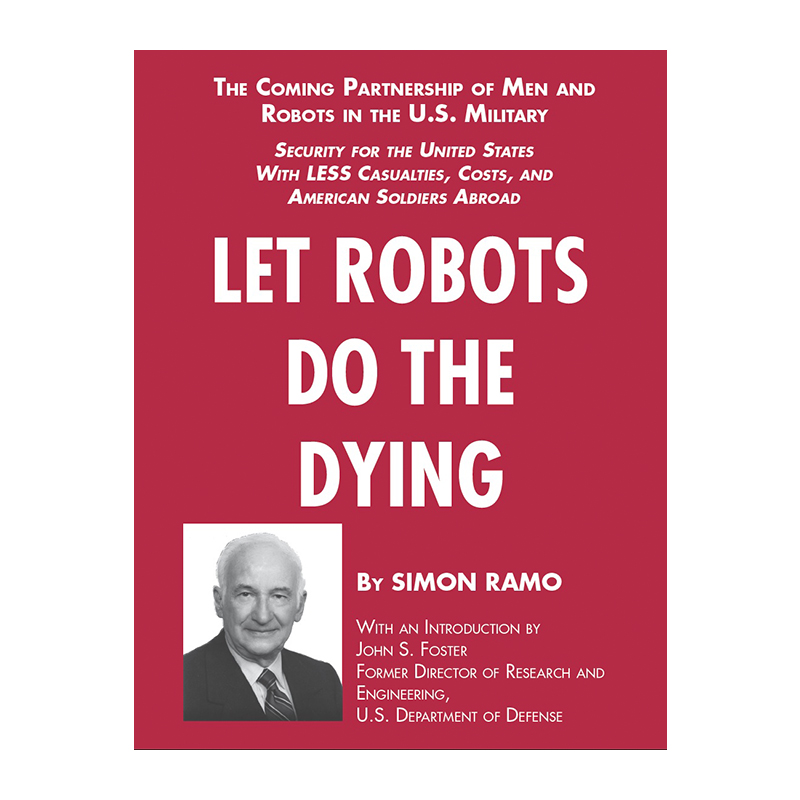Let the Robots do the Dying

Our Books
Let the Robots do the Dying
Simon Ramo$22.50
From the Introduction (by John S. Foster, Jr.) – This is an important book about a very important national security opportunity for the United States. It concerns the future security of this nation and is written by a scientist-engineer and technical corporation founder who may have been analyzing such matters successfully for more years than any other living American. This book is loaded with predictions. This makes it pertinent to note the author s past success in that art. For the same reason this is a text book on how to think about important national security problems. In this book Ramo predicts that a coming partnership of man and robot will come to characterize the American military. He makes the case based on several key factors: the critical need for U.S. security at lower costs (in view of our severe national budget deficits), the U.S. public s growing refusal to support prolonged battle casualties, and the demand for fewer American forces overseas. An author writing about such matters requires not only a strong science and technology background but wide experience in government, private industry operations, and the consequences on society.
Author Biography
Reviews (1)
1 review for Let the Robots do the Dying
You must be logged in to post a review.



Giuseppe –
I for one disagree with your coencrns. I see them, and acknowledge them, but don’t agree with them.Technology’s role isn’t to make things simpler it’s to make things easier. Remotes. Robots that aid the medical team.On that note, the medical team the purpose of the robot would be aiding in a specific way, one with a chance of failure low enough that calculating the probability of it happening would be a waste of time and resources. But, even if that did happen, assigning blame is not a priority. It won’t bring the patient back, after all, and there’s already a system in place for patients dying. Sometimes it happens. It’s not always someone’s fault.On your question aren’t we already incompetent and lazy, by prehistoric standards? We don’t hunt, we don’t need to spend half of every day working to survive they wouldn’t recognize us. We have adapted to a different role. Standards change as society does, as technology does, and I don’t quite see that as a bad thing.Will we become incompetent and lazy? If we do, it’s our fault, not the thing we used to enable it. Personal responsibility is a thing, and blaming an inanimate object for one’s own failings (or using it to enable baser actions) is not the technology’s fault. It’s the person’s fault for choosing to use it.